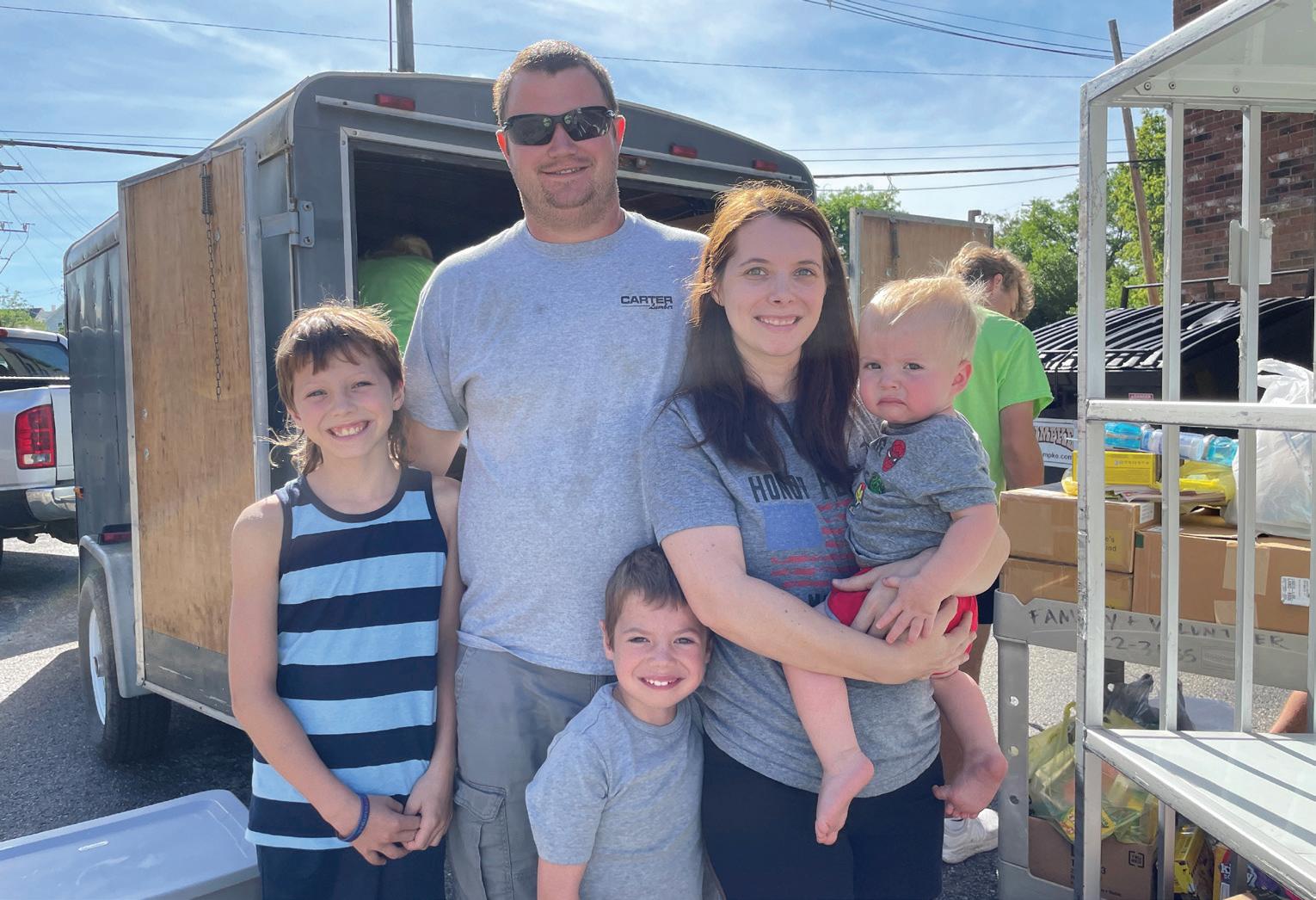
1 minute read
It’s All of Us
Aman stands in front of a group of people and asks, “Who here has mental health?” Only a handful raise their hands.
“We all have mental health,” he says.
Advertisement
More than 1 in 5 adults have experienced a mental disorder within the past year. And 1 in 5 children will have a mental health disorder in their lifetime. Half of those will not get treatment. The disconnect between prevalence and treatment is complicated, but one contributing factor is stigma.
Stigma is ‘a set of negative and often unfair beliefs that a society or group of people have about something.’ Fear of judgment, rejection or misunderstanding from others can contribute to people not seeking help for mental health conditions. Those suffering may even hold false beliefs of their own about mental health disorders or think that they should use willpower to ‘get over it.’ This is similar to expecting a broken bone will spontaneously mend itself if we just want it bad enough.
What can we do to help break stigma?
In our everyday lives, we can use non-stigmatizing language. We can see people first and disorders second. For example, instead of saying:
“She’s depressed” say, “She has depression.”
“He’s bipolar” say, “He has bipolar disorder.”
Casually throwing around terms such as “crazy,” “nuts,” “not normal,” “psycho,” or “schizo,” can cause harm to those who may personally be suffering in silence or have a friend or family member doing the same. While terms such as these can shut down a conversation and leave people fearing judgment, using language such as, “He has a mental health disorder” (if this is known) conveys acceptance.
Additionally, it is important to avoid playing amateur detective and speculating about whether someone has a mental health disorder and what their diagnosis might be. For example, don’t say, “That kid must have ADHD” when observing a child excitedly running around. Our mental health is complex and operates on a continuum of typical thoughts, feelings, and behaviors. A qualified professional can determine the presence or absence of a disorder after a thorough assessment.
Whether or not we are personally affected by a mental health disorder, we can be champions and advocates for better understanding of people who have them by challenging harmful language and beliefs when we hear them.
After all, it’s not them and us. It’s all of us.
IN RECOGNITION OF WORLD MENTAL HEALTH DAY ON OCTOBER 10, CONSIDER:
• Take action for children's mental health by visiting onoursleeves.org. Help break stigmas and give kids a voice.
• Practicing Mental Fitness: o Remind yourself of 3 things you are grateful for o Take a walk o Smile and say hello to each person you see o Practice deep breathing for 5 breaths o Give yourself the gift of an extra 30 minutes of sleep o Send a message to someone you miss










